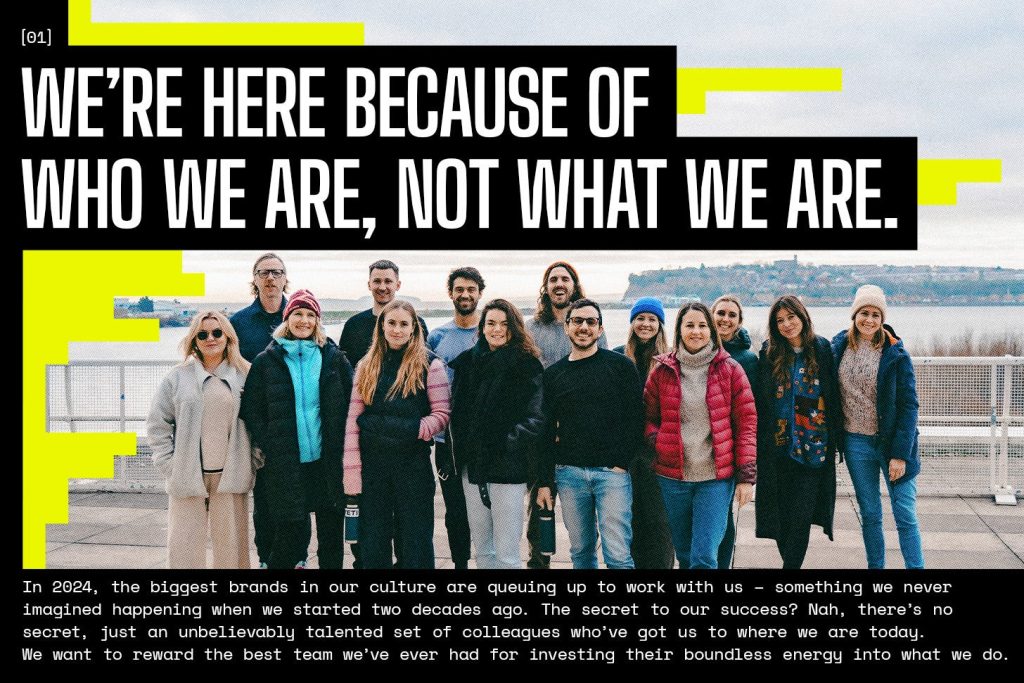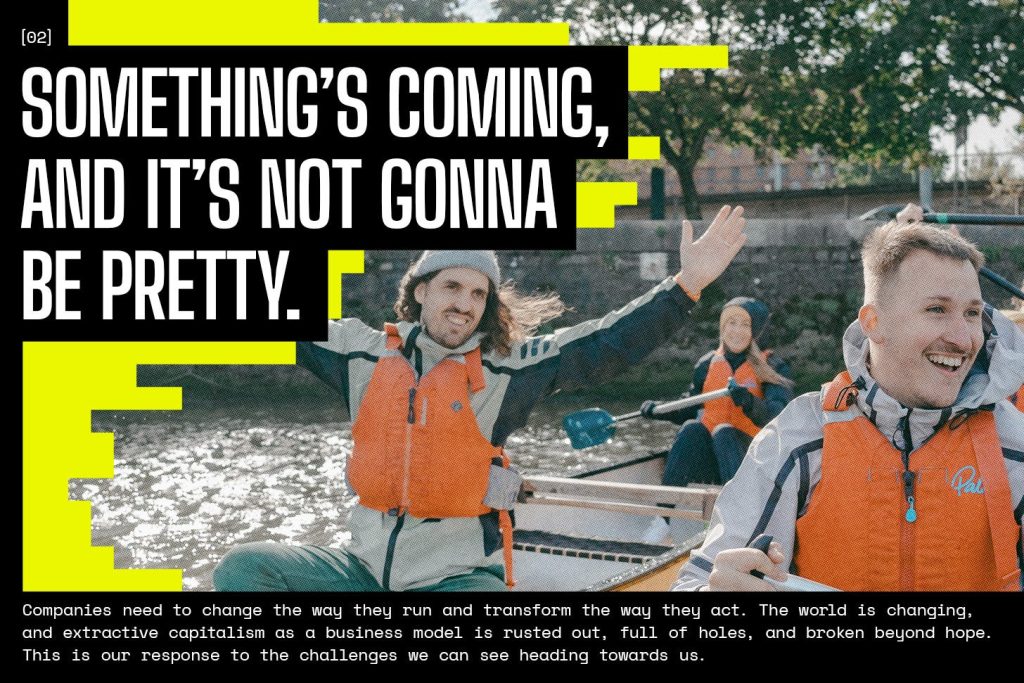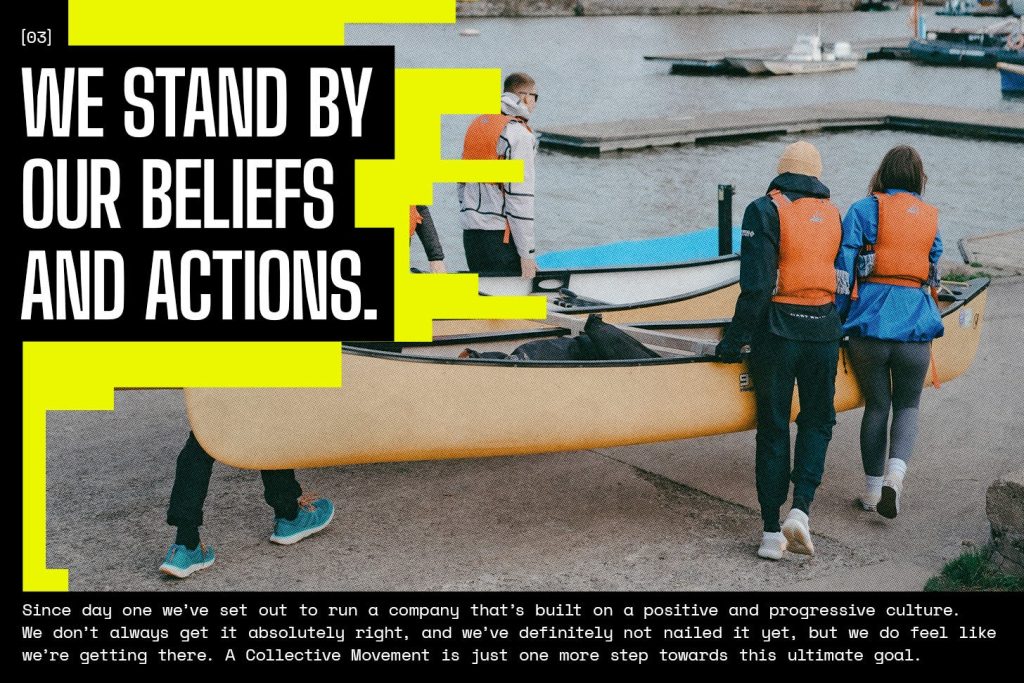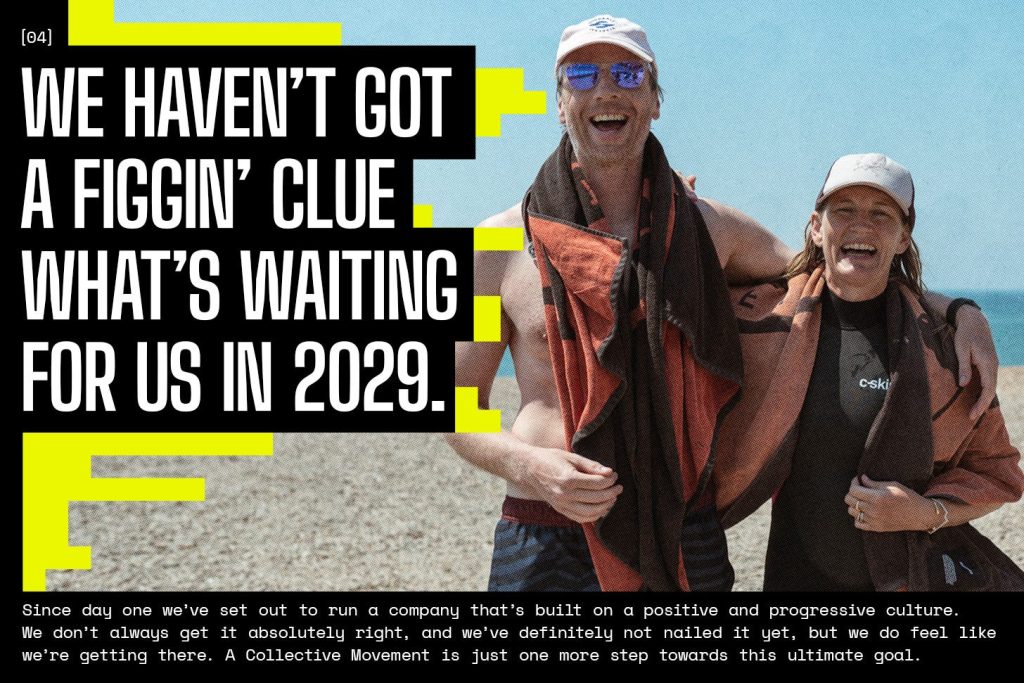Journalist Tristan Kennedy speaks to Matt and Jojo — ACM’s only shareholders… until recently — about their decision to hand over ACM to its employees
In her best-selling book Doughnut Economics, the Oxford-and-Cambridge-educated Professor Kate Raworth posits the idea that, for humanity to survive in the 21st century, we need to reimagine the world much as Homer might. Not Homer the Greek poet and author of The Iliad, but Homer J. Simpson, paterfamilias of the world’s most famous cartoon family, and sugary baked goods fanatic.
A giant doughnut, Raworth writes, should be the single most important symbol guiding the decisions of politicians and economists the world over. As a society, we need to stop fetishising endless economic growth, she argues. Instead, we should be targeting enough growth to pull people out of “the hole” — where they’re falling short on life’s essentials — without pushing beyond “the outer ring” of her imaginary doughnut — the natural capacity of humanity, society, or the planet. In a description Bart’s father would surely appreciate, Raworth calls the area between these concentric rings “the sweet spot” — a space in which everyone has the resources they need to thrive, and the greedy are prevented from tipping humanity over the edge.
It’s a compelling vision, and one Raworth says shouldn’t just apply to world leaders and policymakers but to individuals, households, communities — and businesses too: “What if every company strategised around a doughnut table, asking itself ‘Is our brand a doughnut brand? Whose core business helps to bring humanity into that safe and just space?’.”
It was big, burning questions like these that inspired ACM’s co-owners to make the big, bold move announced last month: that they would be handing over control of the company to its employees in a process they’ve dubbed ACM: A Collective Movement. Matt Barr and Jojo White are not just co-owners, creatives, and campaign strategists who know what’s hot right now. They’ve also, always, had an eye on the future. Not just of their business, but of the wider outdoor industry, and indeed the world of business as a whole. Big questions — as anyone who’s listened to Matt’s podcast, or spoken at length with Jojo, will know — are their bread and butter.
As a friend who’s worked with them both on various projects over the years (and shared more than a few post-event pints chewing over the aforementioned big questions) I’ve long been aware of the importance they place on company culture. Hiring passionate people, and building a workplace that reflects the relaxed vibe of the outdoor activities they love — as well as their best ethical traditions — has been at the heart of their company’s success.
But if last month’s announcement was entirely in keeping with their character, it still struck me as a hugely impressive decision. Business owners who’ll talk about the equitable distribution of wealth after a few pints are two a-penny, but how many are actually prepared to dip into their own pockets and put their money where their mouth is?
Last week I sat down with Matt and Jojo to talk about the ins and outs of the decision and the reasons behind it, and what they’re hoping it will achieve. We also talked at length about their inspiration. And while they’ve yet to order a doughnut-shaped table for ACM HQ (it would arguably be a waste anyway, given the company is fully remote) it was clear that the idea of encouraging equitable growth was central to their thinking. They might not be able to change the world, they say, but they can make their corner of it more circular. Professor Kate Raworth and Homer J Simpson would both, I’m sure, approve.

Could you start by just explaining how ACM has been structured up until now?
Jojo: We’re straight-down-the-line business partners, and we have been since the beginning. We have different things we’re accountable for, and the relationship is underpinned by trust.
Matt: But it’s a classic, shareholder business model — there’s two of us and we have staff, and it’s a very traditional way of working. We make all the decisions. Our senior management people are in board meetings, but to steal an old gag, I’d say it’s like the UN, and we’re America.
The plan now is that ACM will be employee-owned by 2029. Can you explain how that employee ownership scheme is going to happen?
Matt: Jojo and I have relinquished 15 percent of our shares. We’ve put them into a pool of what are called ‘share options’. If you’ve been with us for a year, you will be entitled to some of these share options, and after three years — the vesting period, as it’s known — those share options turn into actual shares in the company. And the reason, ultimately, is we want to give our employees a share of the success of this company.
JoJo: Yeah, and just two other points to add: first, the level of share options you get is not related to your role within the business; it’s a completely level playing field. And second, we have financed people’s share options — our team haven’t had to outlay anything to buy into this scheme.

That sounds pretty generous and quite egalitarian. What’s the thinking behind it?
Matt: All businesses have growth at their heart, right? The plan of any business is to grow and make more profit for your shareholders. And under the extractive “normal” model of capitalism, all that profit and value just goes to the people at the top of the tree. We don’t want to do that. What we want to do is enable our team, who’ve contributed to the success of the company, to have a share of that.
Jojo: I think it’s going to be a great way of empowering people to challenge decisions. We’re always probing, poking, asking “How can we do this better?”. And people are bored of me and Matt poking and challenging everything. With this, other people are empowered to do that in place of us.
Matt: Right. I’m nearly 50, so you know, there comes a point where a 25-year-old’s gonna look at you and be like: “Alright mate.” [laughs] But that’s one of the things that is so great about working with people who are younger than you — they can help you run your business in a different way than you would. And that’s a legitimate ambition for this thing.
And what about the level playing field in terms of the number of share options? That’s not necessarily standard business practice.
Jojo: Yeah, so a 22-year-old Account Executive is getting the same amount of share options as our Associate Directors. But we believe everybody brings the same value on different levels to the business. If you’re an Exec, you’re going to events, you’re delivering reports, and arguably that value is the same as an Account Director who’s juggling the stakeholders. They’re different, but ultimately, it’s working just as well for the company.
Matt: Also, we think that the people who are involved in the company now are the best people we’ve ever had. And a big part of this move is about creating the right company culture. This has been a 10-year debate for us: what does a progressive agency look like? We’ve always been serious about that, and this approach feels like the most honest manifestation of what we’re trying to achieve.

I know you are both fans of Doughnut Economics, which essentially argues for a more balanced economy — one where growth is only considered good as long as it’s kept within sustainable limits. At a time when even massive companies are talking about “ESG goals” (meaning Environmental, Social, and Governance goals) how has the wider cultural context fed into this decision?
Jojo: Well, we have to be clear that what we’re not doing is claiming to address any environmental goals with this. At the end of the day, we’re an agency, we work with capitalist brands on ad campaigns that are designed to sell products. But I call it a tiny step in the direction of systematic change, in the sense that it’s taking people into account and putting our people at the heart of the business, incentivising them, rather than having that top-up, GDP-growth model which just feeds profits to the top shareholders.
So it’s not addressing the “E” of “ESG”, but it is addressing the “S” and the “G”?
Matt: Right. And the ideas around Doughnut Economics aren’t just about sustainability or climate — they’re about redistributive economies. I’ve interviewed people involved in that movement and they talk about creating economies that are “distributive by design”.
Ultimately, we’re all grappling with the contradictions of how we reconcile operating in a capitalist system. I think if you are a thinking person, you will have thought about that, and we’ve certainly thought about that. We don’t particularly claim to be hugely focused on sustainability, but Doughnut Economics also poses questions about how individuals, communities, and businesses behave. It’s about asking questions like: “How can you have a more equitable impact with the tools at your disposal?”. Our opportunity to have a more equitable impact is through the people that work for us.

Your people are clearly stoked about it. What’s the response been like from clients and within the industries you work in?
Jojo: The reaction from our clients has been incredible, and I think it’s helped strengthen the relationships between the account teams and their clients. They work very closely together, so I think for the clients to know that their account teams are actually co-owners is great. Because they don’t really deal with us, you know? It’s not us running campaigns.
Matt: That’s true. You know, they’re all rooting for them. A lot of our clients are really loyal to certain team members. So yeah, it’s been very nice to see that.
I can imagine. Finally, what’s next? Once people’s shares have vested, and the transformation is complete, what does the future look like?
Jojo: We want to go surfing more [laughs].
Matt: That has also legitimately always been at the heart of this business though, hasn’t it?
Jojo: Yes, but also more seriously, I don’t want to be the one trying to decide what’s next. I want it to be the team.
Matt: There’s the old boss-employee dynamic: it’s quite hard, culturally, to tell your boss they’re wrong. It just is. But we want that. That’s what we’ve got with some people now and what we’re determined to continue to cultivate.
I think that culture is a huge contributing factor to why the company is on an upward trajectory, and why we’re in a position to be able to make this change. We want more of that, we want more people to have more of a say. And actually, they increasingly do, like the senior team members in particular are starting to get it. They’re changing the way we run the business as we speak.
Tristan’s interview has been edited for length and clarity.